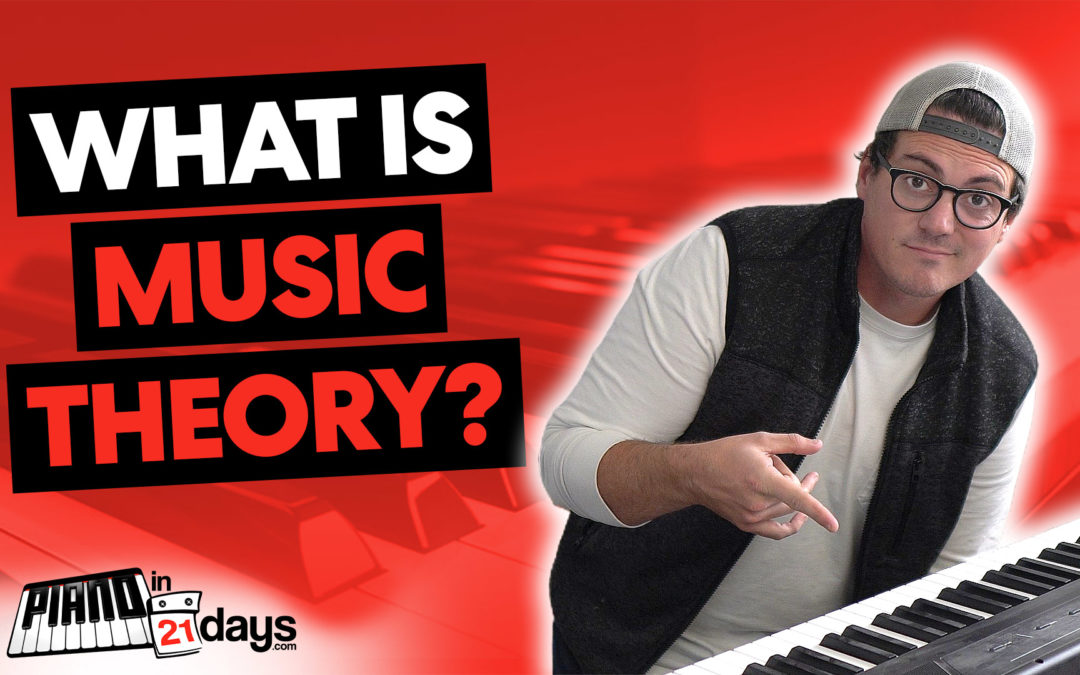What is music theory? Do you need to take years of music classes or get a degree to understand what is music theory? Do you have to be a master instrumentalist to apply music theory concepts to your playing?
The answers are no, no, and no. Music theory is useful at any stage of learning an instrument like piano, and you do not need a serious music education to start learning the language of music theory. There are simple, practical concepts you can learn now that will help you make sense of piano.
What is Music Theory?
It’s a bird, it’s a plane, it’s a… language? That’s right folks, in essence music theory is just the language of music. Just like traveling in a place where you speak the language means more meaningful interactions and understanding, playing an instrument like piano just makes more sense and feels more “real” when you understand the language of music theory.
 Now, you don’t have to be completely fluent to reap the benefits of a new language (music or otherwise). Even a basic understanding can really enhance your experience! And that foundation can always be built on later as you gain more skill.
Now, you don’t have to be completely fluent to reap the benefits of a new language (music or otherwise). Even a basic understanding can really enhance your experience! And that foundation can always be built on later as you gain more skill.
In my new 10-part series, I’ll be answering the question of what is music theory as simply as possible. We’re not going to dig deep into super-specific historical reasons for the composition of baroque instrumentalism, or memorize every single music theory term. If you think of it as a language, that makes sense: you don’t start learning French or Mandarin by reading full-length novels. You start with sounds and vocabulary and basic phrases that you’ll need often.
The How and Why of Music Theory
If I placed you at a piano and physically put your fingers on certain notes, I could get you to play almost anything. But would you know how you were playing it, and why those fingers on those notes produced those results?
No. You’re not a robot to be programmed to parrot songs without any understanding. Even if you memorized a specific chord sequence or song, you would be missing big pieces of the puzzle: the how and the way. But if I taught you what you were doing and why, if I helped you actually understand how your piano is set up and how you implement different music theory concepts on it? The question of what is music theory would give way to better and more interesting questions.
You’d be able to understand what different music theory concepts are and how they affect your playing. You’d be able to apply what you know and keep things interesting: not just rote memorization and mimicry.
How to Learn More
That’s why I’m starting this series, and ultimately that’s why I created Piano In 21 Days. I’m all about demystification and FUN on the piano, and I hope that’s why you’re here too. 😉
Check out my YouTube channel here (Don’t forget to subscribe and turn on notifications so you don’t miss any of this 10–part series on music theory!).
Get my free 5-day workbook here.

